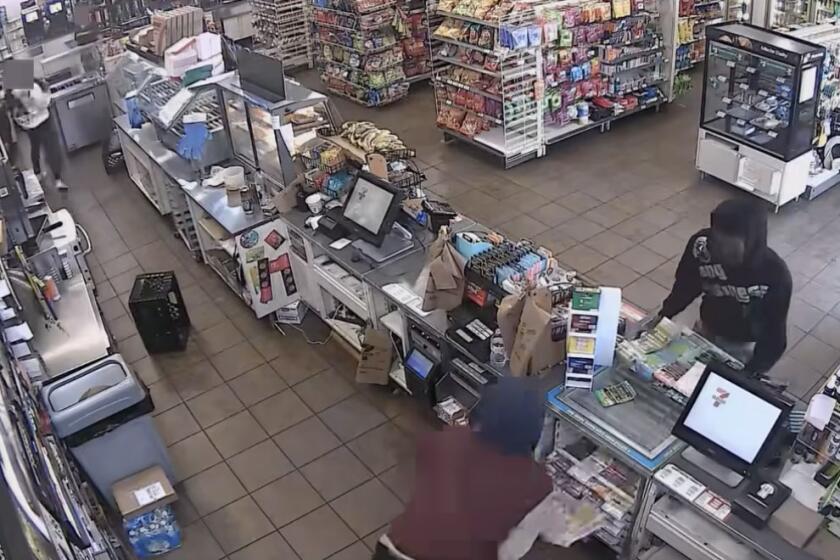Feinstein seeks to ease curbs on water delivery to farmers
Sen. Dianne Feinstein has drawn up legislation that for the next two years would loosen Endangered Species Act restrictions on pumping water from the Sacramento-San Joaquin River Delta to increase irrigation deliveries to San Joaquin Valley growers.
Feinstein has not released details of the proposal, which she is calling the Emergency Temporary Water Supply Amendment and which is expected to be attached to a jobs bill.
In a statement Thursday she said that the language had not been finalized and that she was open to “alternative ways” of boosting water supplies for the valley’s west side, which has been hit hard by delivery cuts caused by the state drought and the pumping limits.
But the draft legislation, a copy of which was obtained by The Times, would effectively weaken new pumping restrictions designed to protect the imperiled delta smelt and crashing stocks of migrating salmon.
Irrigation districts and urban water agencies have sued to overturn the curbs, which they contend are overly strict.
“Regardless of how much it rains and snows . . . we will not be able to move water to storage in San Luis Reservoir under the most severe restrictions imposed” by the fish protections, said Tom Birmingham, general manager of the sprawling Westlands Water District. “This is not a waiver. Nobody is proposing a waiver for the Endangered Species Act.”
But as word of Feinstein’s plan spread, some saw it as an attack on environmental protections from an unlikely source, a powerful Democratic senator from California.
“My only hope is that she remains open and thinks very carefully about the consequences of this lurching response to the situation,” said Assemblyman Jared Huffman (D-San Rafael), a major player in California water politics. “This is by any stretch an attempt to legislate science and an end run around the Endangered Species Act.”
A bill to waive the protections and increase pumping was introduced last year by Rep. Devin Nunes (R-Tulare). And Feinstein persuaded the Obama administration to establish a National Academy of Sciences panel to review the pumping limits to see if other environmental measures would be less disruptive to the federal and state water operations that draw from the delta. The panel’s first report is due next month.
But Feinstein’s latest step, which she disclosed to Central Valley water users in a conference call Thursday morning, surprised some.
“This came as a bit of a shock that she did this,” said Rep. Mike Thompson (D-St. Helena).
He represents the North Coast, which has been hurt by two years of bans on commercial salmon fishing stemming from collapsing salmon stocks.
“If this were to go through, it would have a devastating impact on Northern California and other jobs and other economies in the state,” Thompson said.
Because they have junior rights in the Central Valley Project, the huge federal irrigation project that supplies much of the San Joaquin Valley, farms on the valley’s west side suffered the deepest water delivery cuts last year.
Feinstein’s office did not respond to several requests for comment. But in her statement, the senator said that despite winter storms that are deepening the Sierra snowpack, “farms on the west side of the valley are likely to receive a very low percentage of their water allocations for a second year because that water cannot be pumped and stored.”
Mario Santoyo, a valley water manager and founder of the Latino Water Coalition, said “the crisis has got to a boiling point where something happens this year -- or it’s over for a whole lot of people.”
Feinstein’s proposal, he said, “would allow greater flows to allow greater jobs.”
Environmentalists have said that the most severe irrigation cutbacks have been confined to a small portion of growers and that construction job losses caused much of the rise in Central Valley unemployment.
And salmon fishermen have retorted that their economic losses have been ignored by agriculture’s attack on the pumping limits.
They may be headed for another closed season, based on figures released Thursday. The 2009 count of fall-run Chinook salmon returning to the Sacramento River to spawn was 39,500 -- the lowest number recorded since comprehensive monitoring began in the 1970s.
More to Read
Start your day right
Sign up for Essential California for news, features and recommendations from the L.A. Times and beyond in your inbox six days a week.
You may occasionally receive promotional content from the Los Angeles Times.






